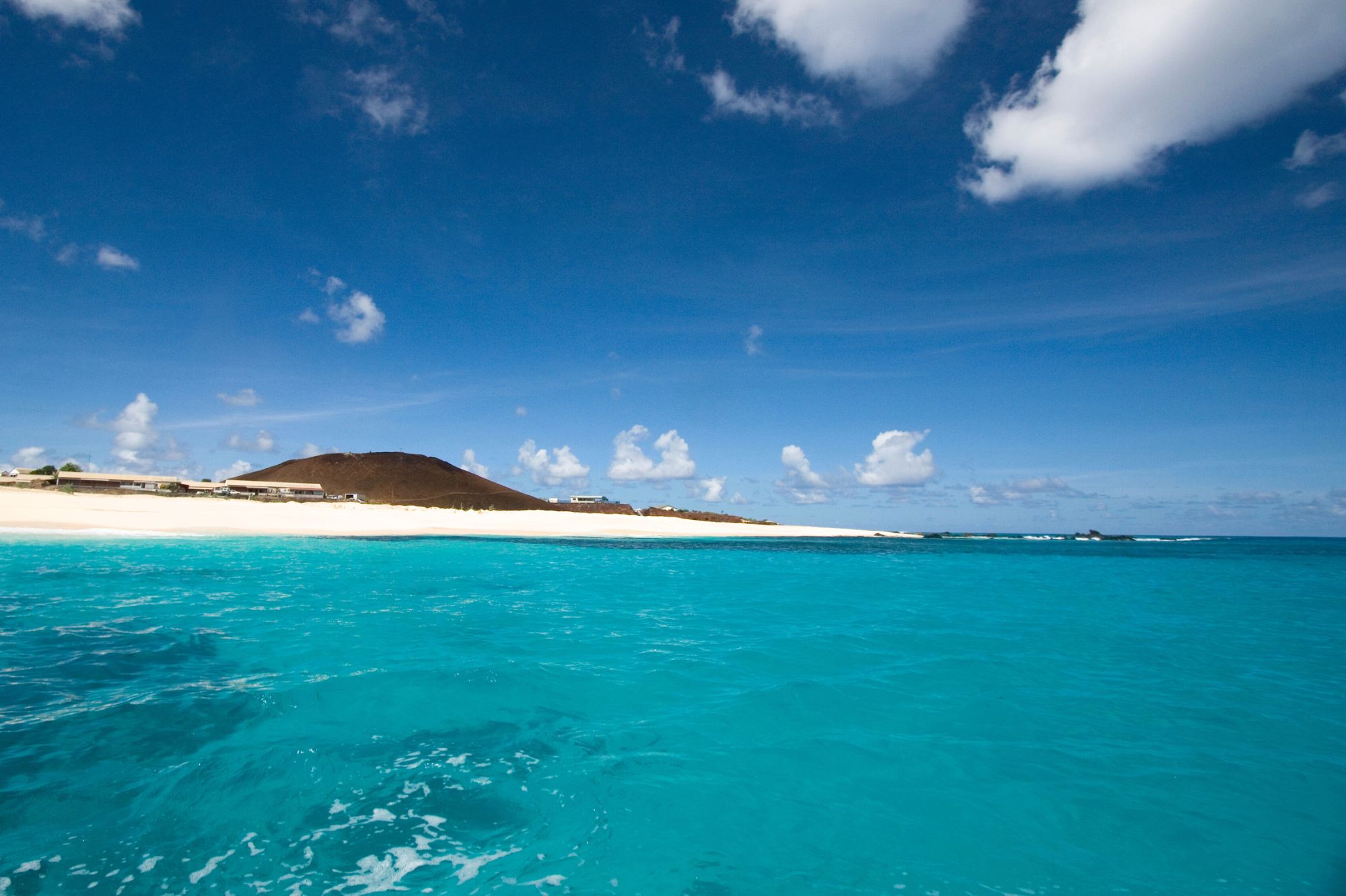Story
Marine Protected Area ‘not safe’ from climate change, projections show
7 May 2024
 Above: Georgetown beach, situated on the west coast of Ascension Island
Above: Georgetown beach, situated on the west coast of Ascension Island
The seas around the remote Ascension Island, situated in the equatorial Atlantic Ocean, have been protected from fishing and deep-sea mining since 2019 and it is the 8th largest marine protected area (MPA) in the ocean. Despite efforts to safeguard this marine area, computer models forecast a worrying future for the area if the rate of climate change continues, even in low emission scenarios.
.png)
Above: Black triggerfish swimming around Boatswain Bird Island near Ascension Island
Despite these efforts, however, even highly-protected MPAs remain vulnerable to the global issue of anthropogenic (originating from human activity) climate change – which has the potential to fundamentally degrade the ecosystems that MPAs are designed to protect. Climate change stressors include thermal stress, ocean acidification and altered food webs.
Given the potential of climate change to compromise the efficacy of MPAs, many recent studies have stressed the need to incorporate ‘climate smart’ principles into MPA design and management – and calling for robust assessments of how local marine environments are likely to change in the future.
As such, scientists from Plymouth Marine Laboratory, alongside colleagues from the Ascension Island Government and the Centre for Ecology and Conservation at the University of Exeter, have produced a paper outlining the projected impacts of climate change on the Ascension Island MPA and its ecosystem services.
.jpg)
Above: Cruise ship and local fishing boats anchored in Clarence Bay, Ascension Island
To assess the vulnerability of individual MPAs to climate change and predict biological responses, it is first necessary to forecast how local marine environments will change. As such, for the first time, a projection focused on the marine circulation and biogeochemistry of the Ascension Island Marine Protected Area (MPA) has been presented.
Lead Scientist, Dr Lee de Mora - Marine Ecosystem Modeller at PML – explained the findings:
“We used the marine components of computer simulations of the Earth’s climate to try and predict the future of the Ascension Island Marine Protected Area - projecting a range of emission scenarios and shared socio-economic pathways.”
“MPAs like Ascension Island can be highly effective at restoring and protecting marine ecosystems, but that still doesn’t make them safe from climate change. Projections forecast that over the next century, the MPA region will become warmer, more saline, more acidic, with less nutrients, less chlorophyll and less primary production in the surface waters. Even in the low emission scenarios, the models project significant changes within the MPA”
“In addition, the main current of this region - the Atlantic equatorial undercurrent - is also forecast to weaken, in all scenarios. These changes will negatively impact the capacity of the area to provide ecosystem services such as the removal of carbon dioxide from the air, healthy ecosystems, as well as tourism and fish stocks.”
“The results, whilst worrying, are important - allowing policy makers to understand how the changing climate is likely to affect their environment and ecosystem services. Policy makers can then make more informed ‘climate smart’ decisions now, to mitigate the some of the future effects of climate change.”
WATCH NOW: Protecting Paradise: The future of the Ascension Island Marine Protected Area by Dr Lee de Mora
Read the paper Impacts of Climate Change on the Ascension Island Marine Protected Area and its ecosystem services >>
de Mora, L., Galli, G., Artioli, Y., Broszeit, S., Garrard, S. L., Baum, D., et al. (2024). Impacts of climate change on the Ascension Island marine protected area and its ecosystem services. Journal of Geophysical Research: Biogeosciences, 129, e2023JG007395.
https://doi.org/10.1029/2023JG007395
Related information
Acknowledgements:
This work was funded by the UK Darwin Initiative through project DPLUS113 (CRACAB: Climate Resilience and Conservation of Ascension Biodiversity) and by the UKRI natural Environment Research Council, via the TerraFIRMA: Future Impacts, Risks and Mitigation Actions in a changing Earth system project, Grant reference NE/W004895/1. The work of SB has been funded from the European Union's Horizon 2020 research and innovation programme under Grant agreement No 869300 FutureMARES. SLG was funded by a Daphne Jackson Fellowship and NERC Grants NE/V009354/1 and NE/V005448/1. We acknowledge use of the JASMIN data processing facility, a collaborative facility supplied by the Centre for Environmental Data Analysis (CEDA) to support the data analysis requirements of the UK and European climate and Earth system modelling community, and we would like to thank the JASMIN and CEDA teams for their support. We also acknowledge accessing CMIP6 data via the BADC data storage system. We also acknowledge use of the ESMValTool software toolkit and were grateful for their support in developing this work. The authors would also like to acknowledge the editorial team and anonymous reviewers for their patience and contributions towards the final manuscript.